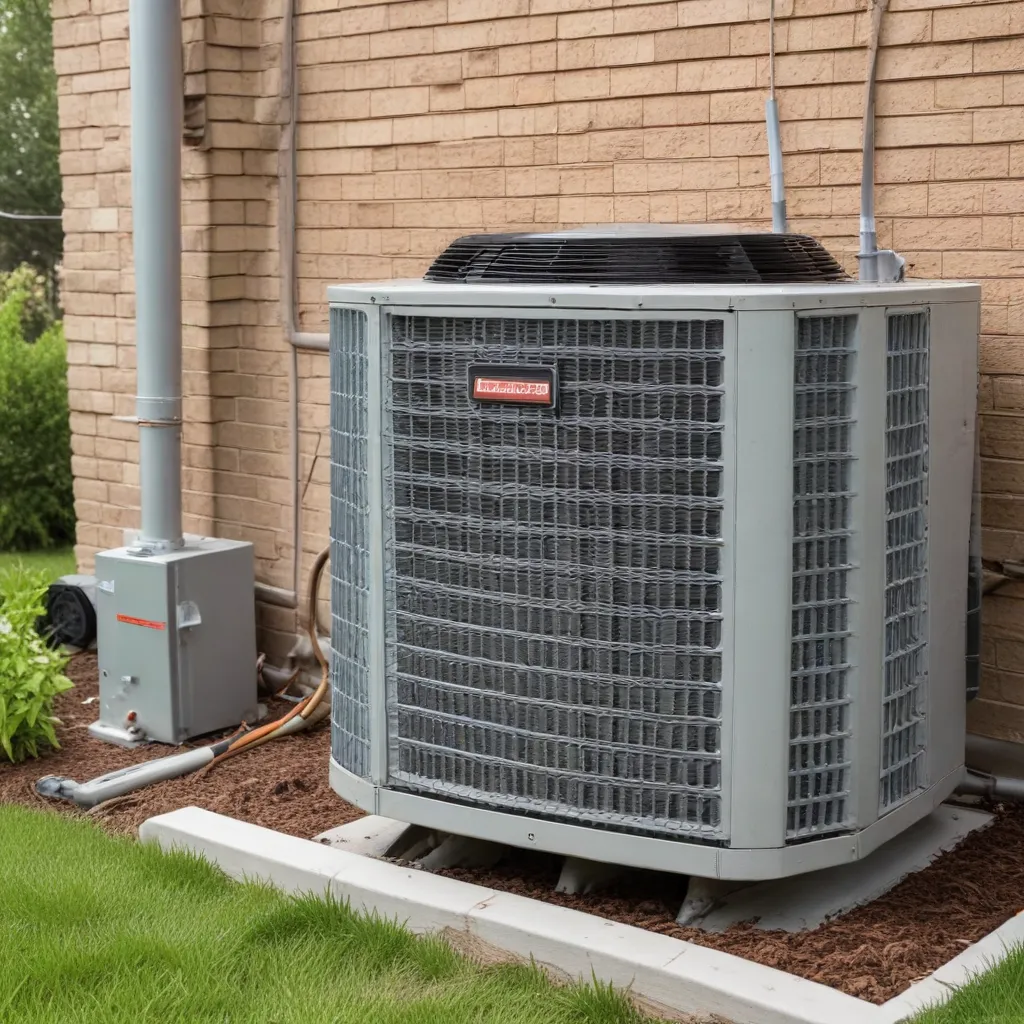
As an experienced air conditioning specialist, I’ve seen firsthand the importance of proper heat pump maintenance. These versatile systems are incredibly efficient at both heating and cooling, making them a popular choice across the UK. However, like any complex machinery, heat pumps require diligent care to ensure they operate at peak performance and enjoy a long lifespan.
The Benefits of Heat Pumps
Heat pumps offer several advantages over traditional HVAC systems. By redistributing existing heat rather than generating it, they consume far less energy, leading to lower utility bills for homeowners and businesses. They also provide both heating and cooling from a single unit, simplifying the climate control setup.
Additionally, heat pumps run much more quietly than furnaces or air conditioners, creating a more peaceful indoor environment. And with no need for on-site fuel storage or combustion, they eliminate the safety risks associated with gas-powered systems.
Factors Affecting Heat Pump Longevity
While heat pumps are engineered for durability, several factors can impact their life expectancy. Location, usage patterns, maintenance routines, and even the quality of the initial installation all play a role in how long a heat pump will continue to function efficiently.
Climate and Environment
In moderate climates like the UK, heat pumps can last 10 to 15 years on average. However, extreme temperatures, whether scorching summers or freezing winters, can take a toll and shorten that lifespan. Systems installed in coastal areas may also face accelerated corrosion due to saltwater exposure.
Usage and Load
Heavily used heat pumps that run constantly, especially during peak demand periods, will naturally wear down faster than those used more moderately. Ensuring your system is properly sized for your home or business space is crucial to prevent excessive strain on the components.
Maintenance Practices
Regular professional servicing and DIY upkeep are essential for maximizing a heat pump’s longevity. Neglecting tasks like clearing debris, changing filters, and monitoring refrigerant levels can lead to premature failures.
Installation Quality
Improper installation, whether due to poor workmanship or using the wrong equipment for the application, can undermine a heat pump’s performance and durability from the start. Partnering with a reputable, certified HVAC contractor is key to getting the most out of your system.
Essential Maintenance Tips
To keep your heat pump running smoothly for years to come, follow these best practices:
Schedule Annual Tune-ups
Have a professional HVAC technician service your system at least once a year, ideally in the spring before the cooling season kicks in. They can perform comprehensive checks, make any necessary adjustments, and identify any potential issues before they become major problems.
Replace Filters Regularly
Dirty air filters restrict airflow, forcing the heat pump to work harder and use more energy. Set a calendar reminder to swap out the filters every 1-3 months, depending on usage and environmental conditions.
Clear the Outdoor Unit
Leaves, grass clippings, and other debris can accumulate around the outdoor condenser unit, hampering its ability to efficiently transfer heat. Use a garden hose to gently rinse off the coils and fans a few times per year.
Monitor Refrigerant Levels
Refrigerant is essential for a heat pump to function properly. If levels drop due to leaks, the system will struggle to heat or cool your space effectively. Have a technician check and recharge the refrigerant as needed.
Upgrade Aging Components
Over time, certain heat pump parts will wear out and require replacement, such as the compressor, blower motor, or reversing valve. Proactively swapping these out can prevent unexpected breakdowns and extend the system’s lifespan.
Embracing Energy Efficiency
Beyond regular maintenance, there are several ways homeowners and businesses can boost the energy efficiency of their heat pumps:
Proper Thermostat Use
Setting the thermostat to moderate temperatures (around 78°F in the summer, 68°F in the winter) and avoiding excessive temperature swings can significantly reduce energy consumption without sacrificing comfort.
Duct Sealing and Insulation
Ensuring your ductwork is properly sealed and insulated prevents conditioned air from escaping, minimizing the workload on your heat pump.
Shade and Airflow
Strategically planting trees or installing awnings to shade the outdoor unit can help it operate more efficiently. Maintaining adequate clearance and airflow around the condenser is also crucial.
Upgrading to a High-Efficiency Model
If your heat pump is nearing the end of its lifespan, consider replacing it with a newer, ENERGY STAR-certified unit. The latest models offer dramatically improved efficiencies that can slash your monthly energy bills.
Staying on Top of Advancements
The HVAC industry is constantly evolving, with innovative technologies emerging to improve heat pump performance and energy savings. As an air conditioning specialist, I make it a priority to stay up-to-date on the latest developments.
For example, variable-speed compressor heat pumps are becoming increasingly popular. These advanced systems can modulate their output to match the precise heating or cooling demand, avoiding the energy-intensive on/off cycling of traditional single-stage models. Pairing a variable-speed heat pump with smart thermostat technology can unlock even greater efficiency gains.
Another exciting advancement is the introduction of cold climate heat pumps, which can maintain optimal performance even in sub-freezing temperatures. Designed for use in colder regions, these specialized systems help overcome the historical limitations of heat pump technology in extreme winter conditions.
Regardless of the specific heat pump technology in your home or business, the key is to work closely with a qualified HVAC contractor who can provide expert guidance on the latest product innovations and how to get the most value from your system. By staying informed and proactive about maintenance and upgrades, you can ensure your heat pump delivers reliable comfort and energy savings for many years to come.
To learn more about how Hamilton Air Conditioning can help you maximize the performance and longevity of your heat pump, I encourage you to visit our website. Our team of experienced professionals is dedicated to providing industry-leading HVAC solutions tailored to your specific needs.